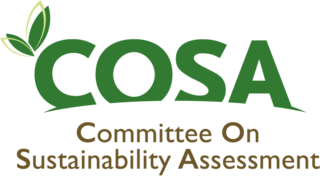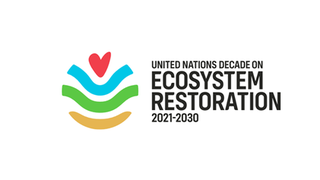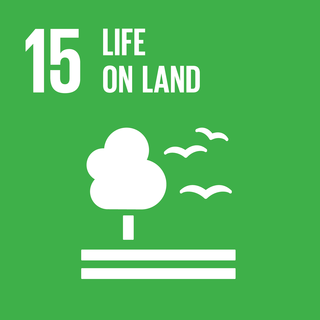The only mandated international agricultural research organization is the CGIAR The CGIAR Fund supports 15 international agricultural research centers such as the International Water Management Institute (IWMI), International Rice Research Institute (IRRI), the International Institute of Tropical Agriculture (IITA), the International Livestock Research Institute (ILRI), the International Food Policy Research Institute (IFPRI) and the Center for International Forestry Research that form the CGIAR Consortium of International Agricultural Research Centers and are located in various countries worldwide, The centers carry out research on various agricultural commodities, livestock, fish, water, forestry, policy and management.

The International Maize and Wheat Improvement Center is a non-profit research-for-development organization that develops improved varieties of wheat and maize with the aim of contributing to food security, and innovates agricultural practices to help boost production, prevent crop disease and improve smallholder farmers' livelihoods. CIMMYT is one of the 15 CGIAR centers. CIMMYT is known for hosting the world's largest maize and wheat genebank at its headquarters in Mexico.

CGIAR is a global partnership that unites international organizations engaged in research about food security. CGIAR research aims to reduce rural poverty, increase food security, improve human health and nutrition, and sustainable management of natural resources. It is carried out at 15 centers that collaborate with partners from national and regional research institutes, civil society organizations, academia, development organizations, and the private sector. These research centers are around the globe, with most in the Global South and Vavilov Centers of agricultural crop genetic diversity.

The Center for International Forestry Research (CIFOR) is a non-profit scientific research organization that conducts research on the use and management of forests with a focus on tropical forests in developing countries. CIFOR, which merged with World Agroforestry on Jan. 1, 2019, is the forestry and agroforestry research center of the Consultative Group on International Agricultural Research (CGIAR), a network of 15 research centers around the world that focus on agricultural research for sustainable development, working closely with governments and other partners to help develop evidence-based solutions to problems related to sustainable agriculture and natural resource management.

The Crop Trust, officially known as the Global Crop Diversity Trust, is an international nonprofit organization with a secretariat in Bonn, Germany. Its mission is to conserve and make available the world's crop diversity for food security.
Dr. Rajendra Singh Paroda is an Indian agricultural scientist. He was a former Director General of the Indian Council of Agricultural Research (ICAR) and Secretary, Department of Agricultural Research and Education (DARE), Government of India. He was general president of the Indian Science Congress Association during 2000-2001 and the president of National Academy of Agricultural Sciences (NAAS) from 1998 to 2000. He was elected as the first chairman of the Global Forum on Agricultural Research (GFAR), FAO, Rome from 1998 to 2001. He serves as executive secretary of the Asia Pacific Association of Agricultural Research Institutions (APAARI) based at FAO Regional Office, Bangkok since 1992. He also served as chairman, board of trustees, ICRISAT, Hyderabad, member of IRRI Board, Los Banos, Philippines and member of Advisory Council of Australian Centre for International Agricultural Research (ACIAR), Canberra, and the Commonwealth Agriculture Bureau International (CABI), London.
The Global Forum on Agricultural Research and Innovation (GFAR) is an inclusive global mechanism enabling all those concerned with the future of agriculture and its role in development around the world to come together and address key global needs. GFAR provides an open forum for stakeholders across the agricultural spectrum—from researchers and organizations to farmers—to participate in collaborative discussion and action around the current and future state of agriculture.

Bioversity International is a global research-for-development organization that delivers scientific evidence, management practices and policy options to use and safeguard agricultural biodiversity to attain global food and nutrition security, working with partners in low-income countries in different regions where agricultural biodiversity can contribute to improved nutrition, resilience, productivity and climate change adaptation.
The World Vegetable Center (WorldVeg), previously known as the Asian Vegetable Research and Development Center (AVRDC), is an international, nonprofit institute for vegetable research and development. It was founded in 1971 in Shanhua, southern Taiwan, by the Asian Development Bank, Taiwan, South Korea, Japan, the Philippines, Thailand, the United States and South Vietnam.

The Committee on Sustainability Assessment (COSA) is a global consortium of development institutions that work collaboratively to advance sustainability learning with its systematic and science-based measurement. COSA applies a pragmatic and collective approach for using scientific methods to develop indicators, tools, and technologies to measure the distinct social, environmental, and economic impacts and are applied in performance monitoring, evaluation, ROI calculation, and impact assessment. COSA has a public mission to open its scientific methods and metrics up to widespread use.
Crops For the Future, known by its acronym CFF, is an independent international organisation with a mandate to promote and facilitate the greater use of neglected and underutilised crops for enhanced diversification of agricultural systems and human diets, particularly for the benefit of poor people in developing countries. Crops for the Future is the only such organisation exclusively dedicated to an agenda increasingly recognised as important to achieving food security in a sustainable manner and making use of local agricultural biodiversity. Crops for the Future is based in Semenyih, Malaysia, and is governed by a Board of Directors, including a representative of the Government of Malaysia.

The International Institute for Sustainable Development (IISD) is an independent think tank founded in 1990 working to shape and inform international policy on sustainable development governance. The institute has three offices in Canada - Winnipeg, Ottawa, and Toronto, and one office in Geneva, Switzerland. It has over 150 staff and associates working in over 30 countries.

Young Professionals for Agricultural Development (YPARD) is an international movement for young professionals. YPARD operates as a network in 72 countries through its chapters. This multi-stakeholder platform's main mission is to serve as a collective global network that enables young professionals to realize their full potential and contribute proactively towards innovative and sustainable agricultural development.

International Center for Biosaline Agriculture (ICBA) is an international, not-for-profit applied agricultural research center with a unique focus on marginal environments. It identifies, tests and introduces resource-efficient, climate-smart crops and technologies that are best suited to different regions affected by salinity, water scarcity and drought. Through its work, ICBA aims to improve food security, nutrition and livelihoods of resource-poor farming communities around the world.

Global Open Data for Agriculture and Nutrition (GODAN) is an initiative that seeks to "support global efforts to make agricultural and nutritionally relevant data available, accessible, and usable for unrestricted use worldwide. The initiative focuses on building high-level policy as well as public and private institutional support for open data."
Between 2009 and 2012, Agriculture and Rural Development Day (ARDD) was an annual event co-organized by the Consultative Group on International Agricultural Research (CGIAR), the Earth System Science Partnership (ESSP), the Food and Agriculture Organization (FAO), the Global Forum on Agricultural Research (GFAR), the International Federation of Agricultural Producers (IFAP), and the International Food Policy Research Institute (IFPRI).

The United Nations Decade on Ecosystem Restoration runs from 2021 to 2030. Similar to other nature related international decades, its purpose is to promote the United Nation's environmental goals. Specifically, to facilitate global cooperation for the restoration of degraded and destroyed ecosystems. Along with fostering efforts to combat climate change, safeguard biodiversity, food security, and water supply. While much focus is on promoting restoration activity by national governments, the UN also wishes to promote such efforts from other actors, ranging from the private sector and NGOs to regular individuals.

Endorsed in December 2017, the United Nations Decade of Family Farming 2019-2028 seeks to place family farming at the center of national public policies and investments. In declaring this decade, the United Nations General Assembly recognized the importance of family farming in reducing poverty and improving global food security. The UN Decade of Family Farming is led by the Food and Agriculture Organization (FAO) and the International Fund for Agricultural Development (IFAD) in collaboration with governments and civil society organizations.

Sustainable Development Goal 15 is about "Life on land." One of the 17 Sustainable Development Goals established by the United Nations in 2015, the official wording is: "Protect, restore and promote sustainable use of terrestrial ecosystems, sustainably manage forests, combat desertification, and halt and reverse land degradation and halt biodiversity loss". The Goal has 12 targets to be achieved by 2030. Progress towards targets will be measured by 14 indicators.

Sustainable Development Goal 2 aims to achieve "zero hunger". It is one of the 17 Sustainable Development Goals established by the United Nations in 2015. The official wording is: "End hunger, achieve food security and improved nutrition and promote sustainable agriculture". SDG 2 highlights the complex inter-linkages between food security, nutrition, rural transformation and sustainable agriculture. According to the United Nations, there are around 690 million people who are hungry, which accounts for slightly less than 10 percent of the world population. One in every nine people goes to bed hungry each night, including 20 million people currently at risk of famine in South Sudan, Somalia, Yemen and Nigeria.














